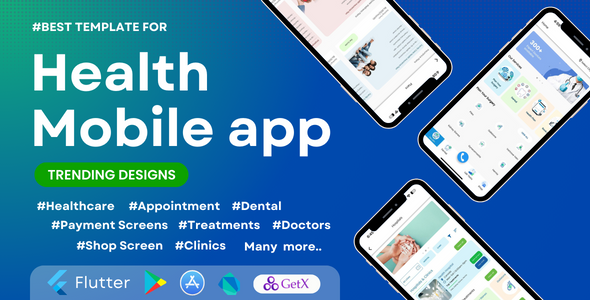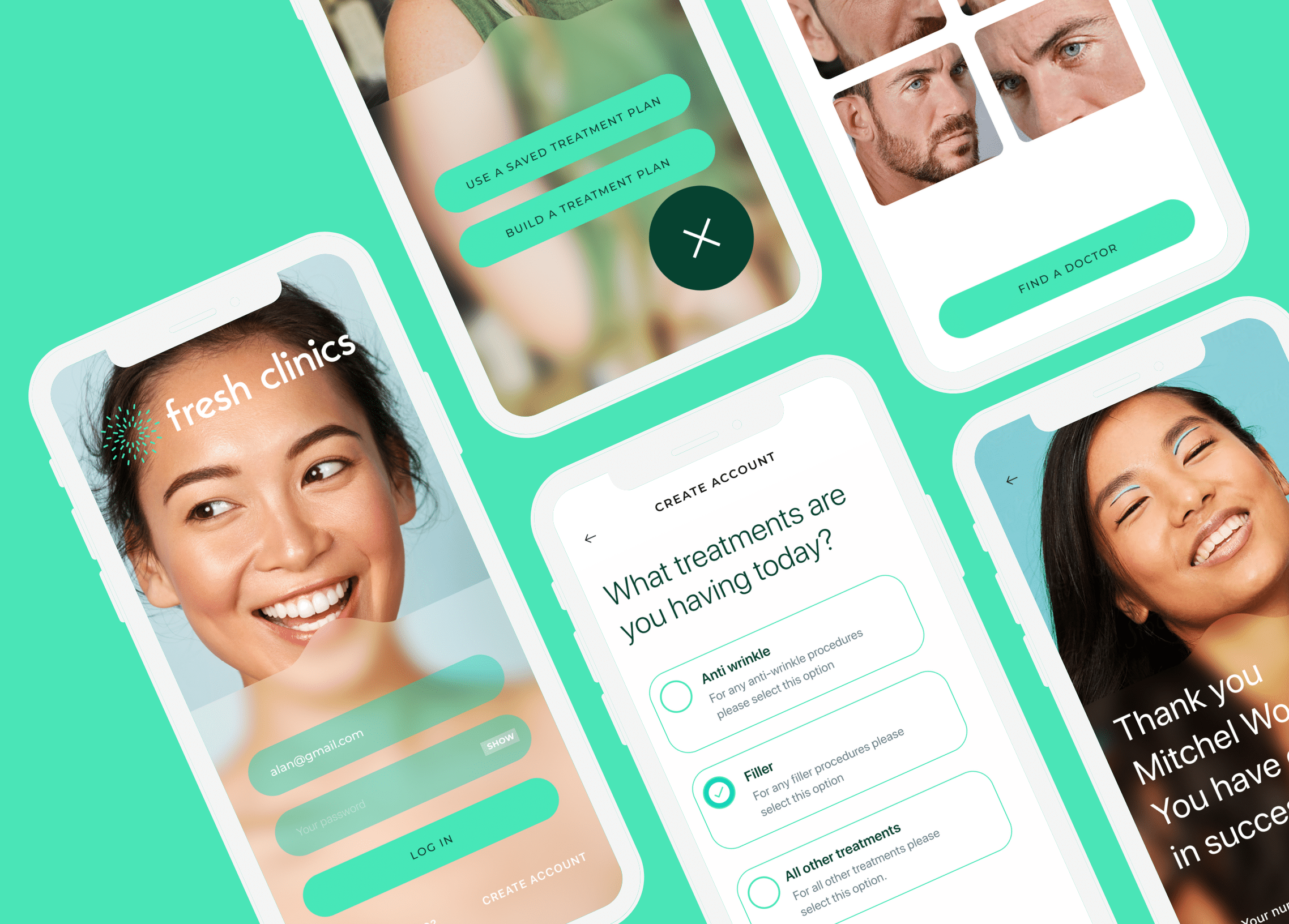How a Mobile App for Clinics Improves Communication Between Doctors and Patients
How a Mobile App for Clinics Improves Communication Between Doctors and Patients
Blog Article
The Future of Medical Care: Why Clinics Need a Mobile App Today
As the medical care landscape continues to progress, clinics deal with placing pressure to adapt to person expectations for greater comfort and ease of access. The assimilation of mobile applications can work as an important strategy for boosting patient interaction and simplifying operations. By leveraging innovation to boost communication and provide crucial services, clinics not only attend to current needs yet additionally position themselves for future success. Nevertheless, the ramifications of this change extend beyond simple functional performance; they can redefine patient relationships and care shipment in extensive methods. What might this change appear like for both centers and people?
Altering Client Expectations
As the landscape of health care advances, individual assumptions are undertaking a considerable makeover. Today's people are progressively seeking convenience, accessibility, and individualized care. With the surge of innovation, especially mobile applications, people currently expect a seamless integration of medical care solutions into their day-to-day lives. They prefer the ability to manage consultations, gain access to medical documents, and interact with healthcare companies with their smart devices, reflecting a change towards an extra proactive approach to wellness administration.
Moreover, clients are coming to be more educated and empowered, commonly looking into treatments and problems online prior to examinations. This enhanced recognition is coupled with a demand for transparency in health care procedures, consisting of cost estimates and treatment choices. Consequently, providers are obliged to adapt by embracing electronic devices that improve the individual experience.
The assumption for prompt and reliable interaction has actually never ever been greater, with many people thinking about responsiveness a vital component of top quality treatment. mobile app for clinics. In this evolving landscape, healthcare companies have to identify these transforming assumptions and leverage mobile applications to cultivate an extra patient-centric strategy, making certain that they not just satisfy however go beyond the requirements set by today's informed customers
Enhancing Patient Engagement

Mobile applications help with interaction in between clients and medical care companies, making it possible for real-time appointment scheduling, tips for drug adherence, and direct messaging attributes. These capabilities not only enhance comfort yet also construct a sense of accountability among clients. Mobile apps can offer educational material tailored to private demands, aiding patients better recognize their conditions and treatment choices.
The combination of gamification components within healthcare applications can likewise inspire clients to take part in healthy and balanced actions, enhancing favorable way of life changes. By tracking progress and gratifying achievements, individuals are a lot more likely to stay committed to their wellness objectives. Eventually, improving client engagement via mobile applications leads to boosted health and wellness outcomes, greater person fulfillment, and a much more collaborative medical care experience. Centers that prioritize this element will likely see a significant influence on the top quality of care delivered.
Streamlining Center Procedures
Improving clinic procedures is important for boosting workflow effectiveness and optimizing client treatment. The application of mobile applications can substantially reduce administrative worries, enabling medical care suppliers to focus a lot more on person interactions. By automating visit organizing, person check-ins, and billing processes, clinics can lessen wait times and boost overall operational effectiveness.
Mobile applications additionally facilitate real-time access to patient documents, allowing healthcare specialists to make educated choices swiftly. This immediacy not just enhances the quality of care however additionally decreases the probability of errors connected with misplaced or outdated information. Moreover, leveraging mobile innovation sustains an extra well organized method to handling client follow-ups and treatment plans, ensuring that no important actions are ignored.
In addition, mobile applications can simplify stock administration by offering centers with devices to keep an eye on medicines and supplies successfully. This permits timely replenishment and helps stay clear of disturbances in individual care due to equip shortages. By incorporating these capabilities right into their day-to-day operations, clinics can develop a much more cohesive and efficient environment, ultimately causing boosted individual results and complete satisfaction. Embracing mobile modern technology is not just a fad; it is an essential development in the health care landscape.
Improving Interaction Channels
Efficient interaction is frequently mentioned as a foundation of quality health care distribution. In today's fast-paced medical atmosphere, mobile applications can considerably improve communication networks in between centers, patients, and health care service providers. By incorporating mobile apps right into their procedures, facilities can promote real-time communications, guaranteeing that individuals obtain prompt details regarding their appointments, test outcomes, and therapy look at this website strategies.
Mobile applications additionally equip patients to communicate directly with their healthcare teams with safe messaging attributes. This straight line of interaction cultivates a sense of interaction and enables instant information of issues, which can cause far better adherence to therapy methods. In addition, press alerts can advise clients of upcoming visits or medicine timetables, lowering no-show prices and boosting total health and wellness outcomes.

Remaining Affordable in Healthcare
In a quickly evolving healthcare landscape, companies have to prioritize technology and adaptability to maintain a competitive side. The assimilation of mobile applications into medical care services is no longer optional; it is crucial for clinics intending to enhance individual involvement, streamline operations, and enhance general solution distribution.
As clients significantly rely upon digital platforms for health and wellness monitoring, facilities that fall short to take on mobile innovation threat dropping behind. home A well-designed mobile app can offer attributes such as appointment scheduling, telemedicine appointments, and access to medical records, giving patients with convenience and fostering loyalty.

Rivals are also spending in mobile options, so staying in advance requires constant enhancement and staying notified about technical advancements. Centers must not just implement mobile applications however likewise participate in routine updates and improvements. Ultimately, the effective integration of mobile innovation will certainly identify forward-thinking healthcare companies and set the standard for patient-centric treatment in a digital globe.
Conclusion
In verdict, the combination of mobile applications in centers is necessary to address the evolving landscape of individual expectations. Inevitably, the critical execution of mobile applications stands Go Here for an important action toward supplying obtainable and tailored health care, therefore satisfying the demands of today's equipped individuals.
Eventually, boosting individual interaction through mobile applications leads to improved health end results, higher patient satisfaction, and a more joint health care experience.Mobile apps also facilitate real-time accessibility to person documents, allowing medical care specialists to make educated choices rapidly. In today's hectic medical setting, mobile applications can considerably enhance communication networks between clinics, patients, and healthcare suppliers.Mobile apps additionally encourage clients to interact directly with their medical care groups via protected messaging functions. Inevitably, the strategic application of mobile applications represents an essential action towards providing personalized and easily accessible health care, consequently satisfying the needs of today's empowered individuals.
Report this page